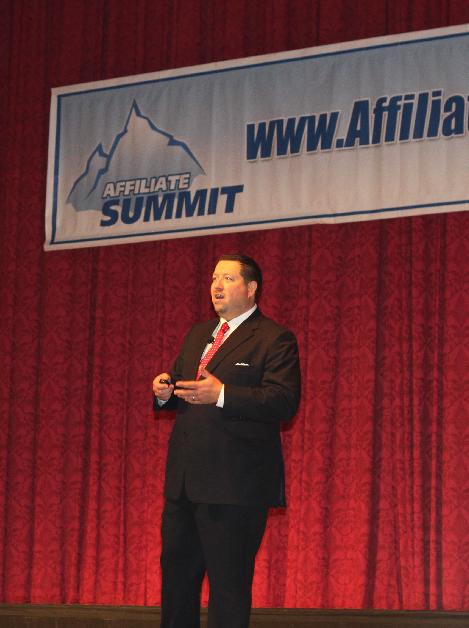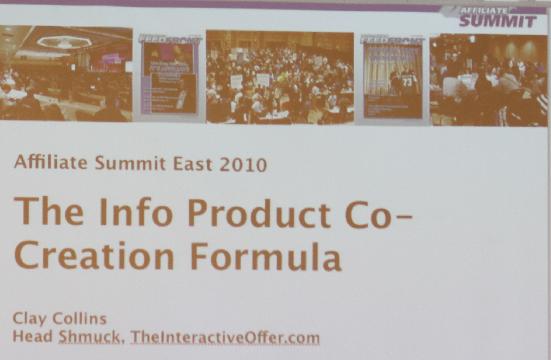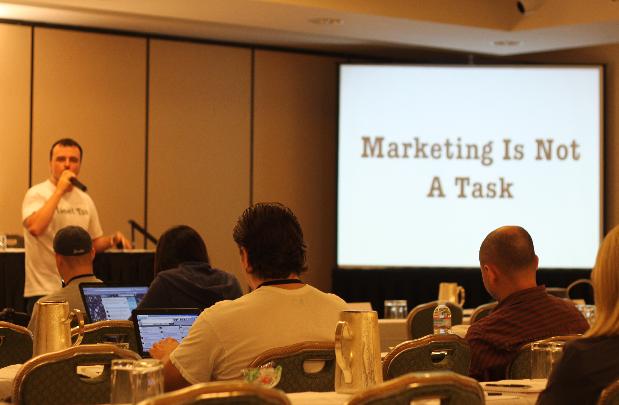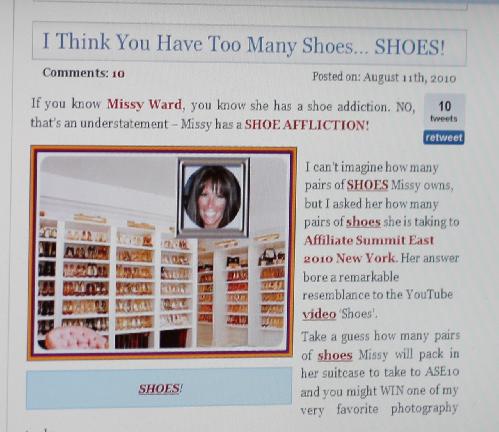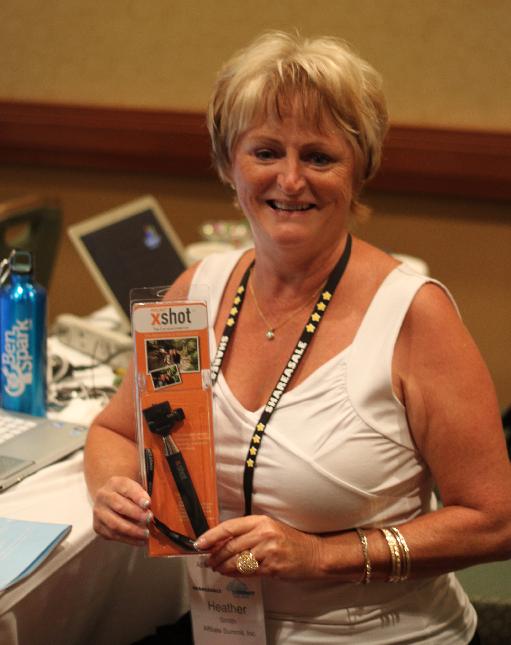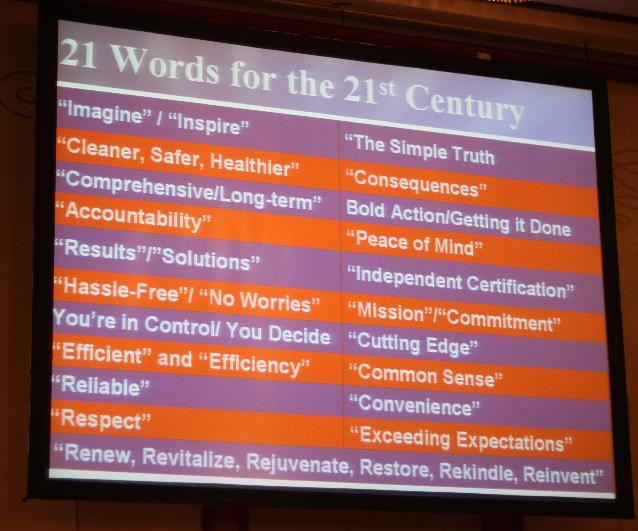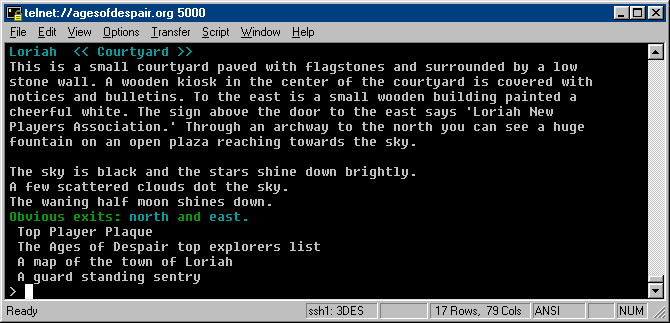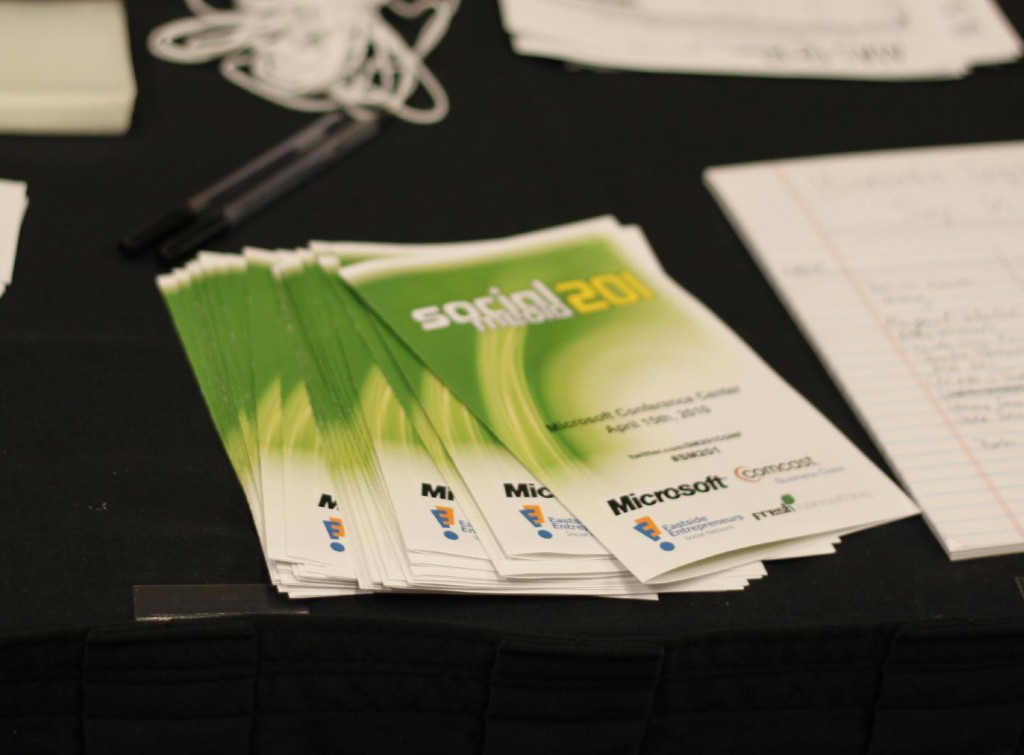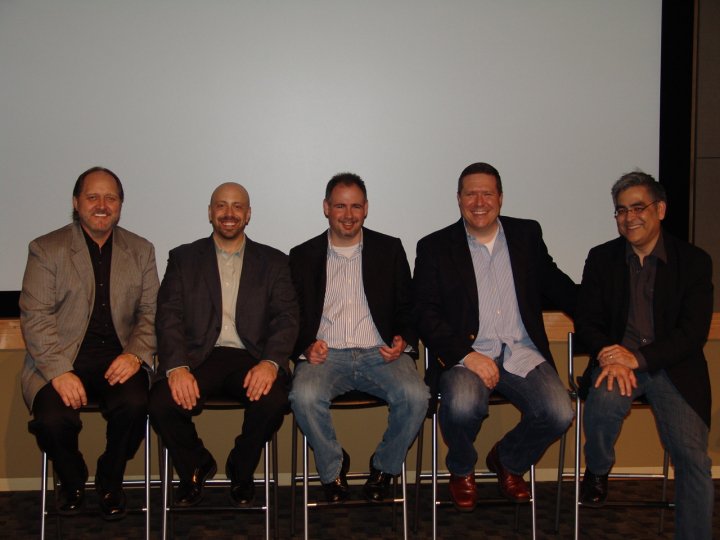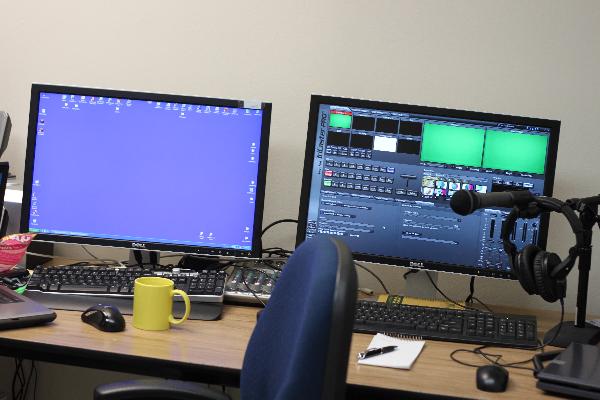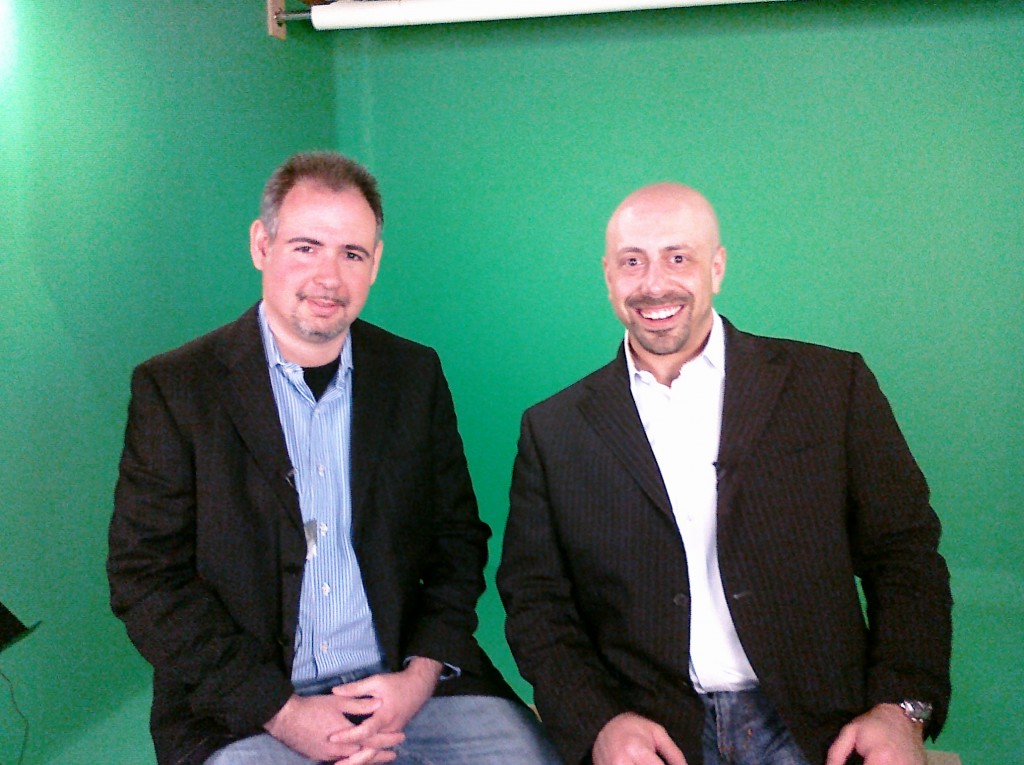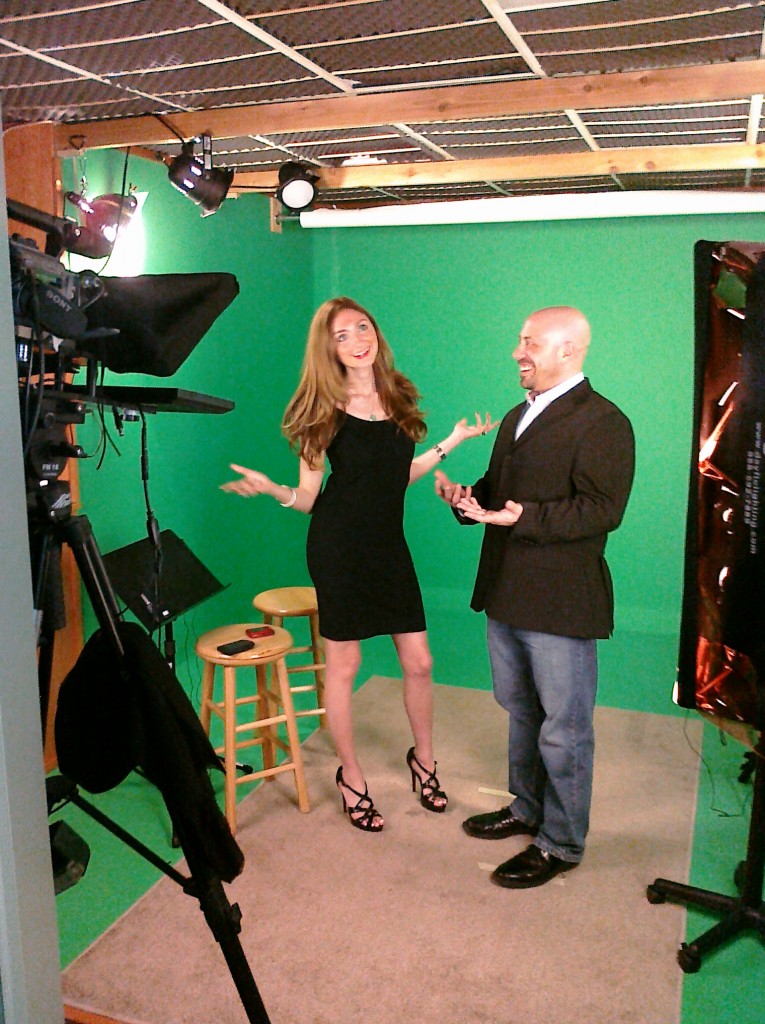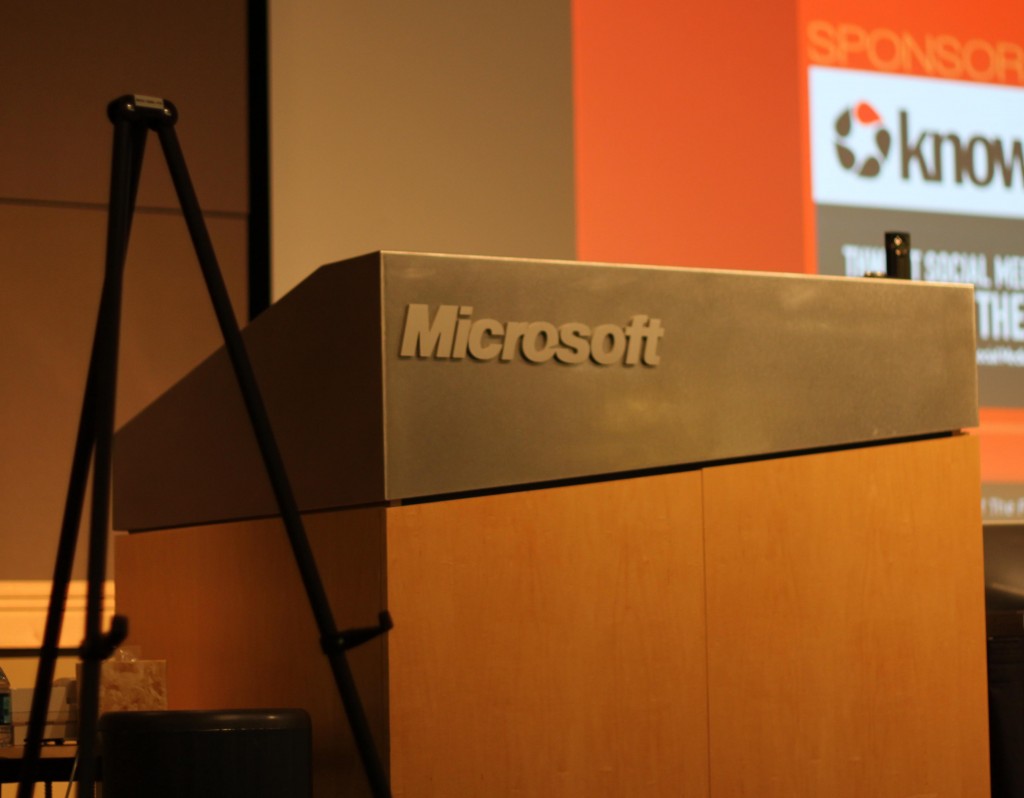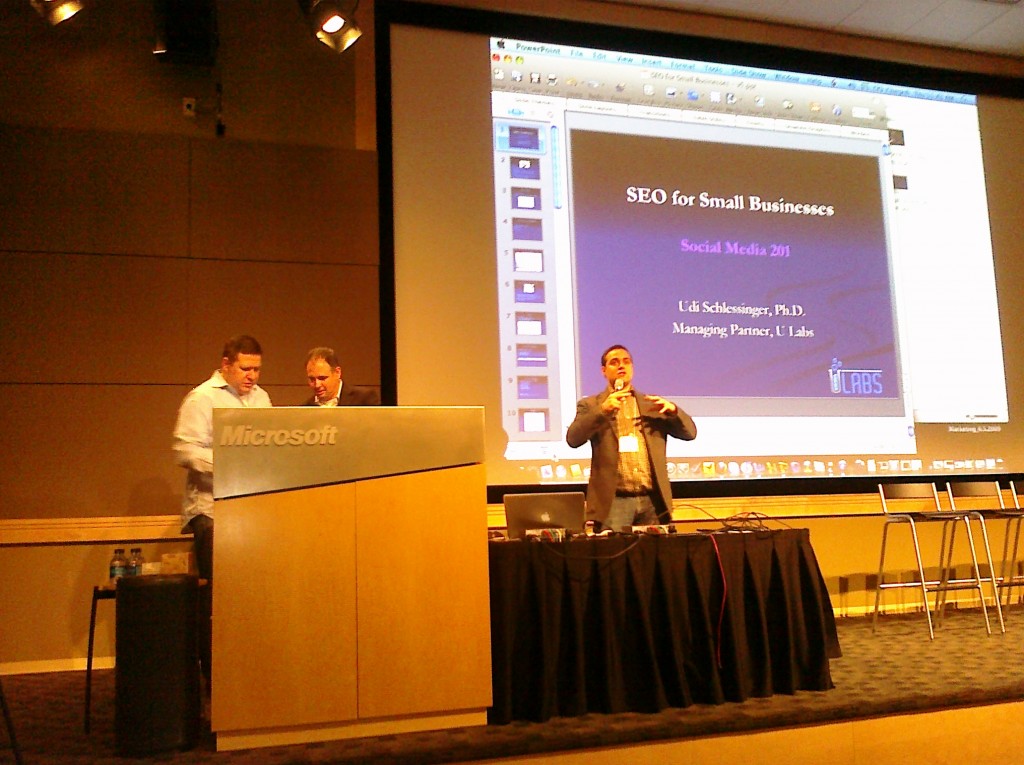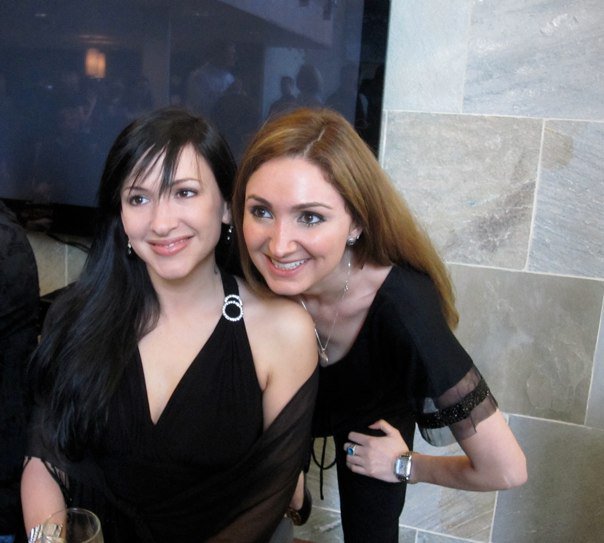The third and last day of Affiliate Summit East 2010 started with a great keynote speech by Jim Kukral, who also gave his recently published book: Attention! This Book Will Make You Money: How to Use Attention-Getting Online Marketing to Increase Your Revenue to the first 300 attendees.
Jim’s talk focused on providing guidance to businesses and individuals who are unsuccessful so that they can become successful. Here’s his five step plan:
- Say what you do: be specific.
- What you do should solve a problem or entertain: All problems in the world can fall into either category. (Someone tweeted afterwards that this is incorrect and stated that looking for information is a third category. I disagree – looking for information solves a problem: getting information you lack).
- Know your customer: Ask them why they use your services so you could further hone your message.
- Be the alternative: If you have a tough competition, find an alternative way. The example given was of the 5 hour energy drink – the alternative to coffee, which many drink for the energy boost.
- Make it easy: Easy as in simple, instant, quick, hassle-free. One suggestion Jim gave to businesses is to avoid the Paypal button as most ‘normal’ people simply aren’t familiar with it. Real world businesses and individuals pay with credit cards – so give them that option.
An interesting anecdote: one of Jim’s tips was that if you come up with an idea and get a reaction – even a very bad one – it means you’re on the right track. After saying that, he shared the story of a company who came up with a bizarrely disgusting line of juices. Someone in the audience blurted “Ewww” and Jim responded – see, that’s exactly what we’re looking for. This company was very successful.
The Info Product Co-Creation Formula
Later I went to the breakout sessions. This one session in particular was very good. Despite the fact these sessions were 20 minutes each, it lasted more than 30 minutes and there was so much information given it could’ve easily filled an entire hour (I add this picture simply because I liked the speaker’s official title..).
In this session a ‘formula’ for creating info-products was given which is said to be so effective that it can be used to sell products even before they are actually made. This was compared to a tennis match, where you, the product creator, ask questions and get feedback from your prospective buyers multiple times.
Although the speaker gave a precise list of steps, there was so much information I wasn’t able to type them exactly as specified. Here’s my amended version (I probably split certain steps).
- Start with a survey
- Get responses
- Identify core needs of the people in your list
- Verify this is what they want: they confirm or deny.
- Give them a free report based on their responses.
- They read the report and respond
- Pre-sell the full (nonexistent) product. If you do it right you can sell more before the product exists to justify your costs. Be fully transparent about this, that you haven’t created the product and want to make it if it’ll appeal to enough people.
- Create the full product.
- You already have enough buyers to return your time investment, and can get many more now.
Affiliate Platforming: How to Attract & Retain Audiences
I went to Scott Stratten’s (@UnMarketing’s) talk. I spoke to Scott during lunch just before – since both of us are very active Twitter users, we exchanged amusing anecdotes (well, mainly horror stories..).
Scott’s talk was excellent, not to mention, absolutely hilarious. He advocated using social media as a platform to engage people and build an audience both for individuals and for businesses. This session would’ve fit perfectly with Social Media 201, the conference I helped organize (and gave a talk) back in April.
Here are guidelines towards attracting an audience (this is relevant for blogging, tweeting, any relevant medium).
- Traction: “nothing works at first”. This is the hardest phase. You blog and/or tweet and it seems no one is listening.
- Momentum: starts taking care of itself. People are coming to you. The ratio change.
- Expansion: you built so much traction and momentum you can expand it.
A few more general guidelines.
- Don’t use Twitter as a one way communication stream and expect success. Scott suggested the key to success is 75% replies.
- To those who just use scheduled tweets – you can’t automate authenticity, people know this and react.
- Social Media investment is much more than dollars (.. and this relates to my own blog post, Twitter: Beyond Immediate ROI)
- Be ready for negative comments. The 1% happiest and the 1% unhappiest are the most vocal.
To demonstrate these points, he gave both good examples and bad ones, i.e. a coffee shop that criticized at length a customer for tweeting a complaint.
Blogger room
Since I was running back and forth between sessions and the exhibition hall, I barely spent any time in the blogger room. To be honest, I didn’t really need to, after all, we had wireless access. But I went there to spend some time with friends.
The blogger room was run by the amazing BlogMistress, Heather Smith. Heather told me about Missy Ward’s competition and I am very sad to say I did not win, though I was runner-up with @loxly. Next year I vow to win.
To summarize: I had a fantastic time at the summit. I think the fact I spent much more time in sessions than in parties really gave me a different affiliate summit experience. Despite not going to parties, I did a good share of networking – I talked to a lot of people at the exhibition hall/meet market, during lunch breaks and in between sessions. Personally I feel this is more effective than exchanging business cards while shouting during a loud party (though I can’t argue with a friend of mine who said “people spill their secrets when they’re drunk”. True.)
Looking forward to the Affiliate Summit West 2011!
p.s. Still have two sessions I intend to summarize as independent posts.
